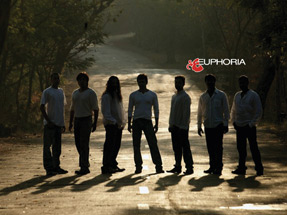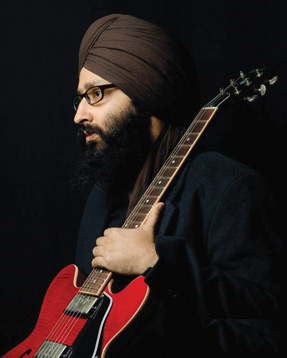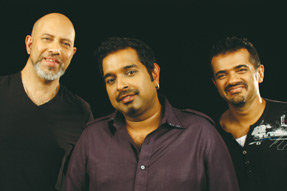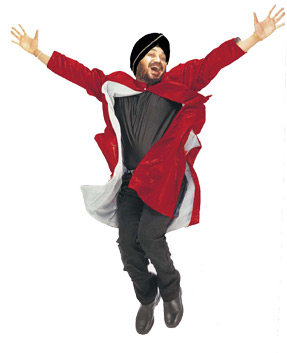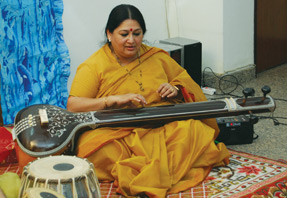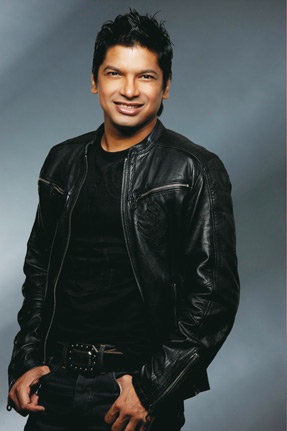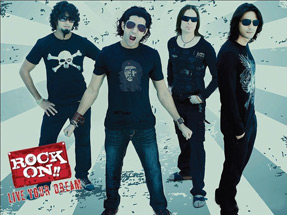Arts
Dying Melodies

Alisha Chenoy had young India crooning “Made in India.” Shaan’s “Tanha Dil,” Abhijeet’s “Deewana” and Sonu Nigam’s “Tuuuu” made them the voice of the new generation. Daler Mehndi’s “Bolo Ta Ra Ra” made him the unrivalled Bhangra King; Colonial Cousins brought in western fusion to classical ragas; Bombay Vikings’ “Wo Chali” introduced a genre of English fusion to old Bollywood tracks; Remo Fernandes “O Meri Munni” and Baba Sehgal’s “Thanda Thanda Paani” had us jiving to Hindi rap, Sunita Rao came up with the mesmerizing “Pari Hoon Main”; Ila Arun’s “Maaro Ghaghro” and Shubha Mudgal’s “Ab Ke Saawan” made us fall in love with rustic melodies. Adnan Sami and Asha Bhosle’s “Kabhi Toh Nazar Milao” and Alka Yagnik’s “Saare Sapne” symphonies touched virtually every Indian heart. The 1990s saw many independent musicians rise to fame with chartbuster albums. Non-film music was a rage.
Today, however, this music culture is in its death throes. There’s a clear divide in the Indian music world between film and non-film music. With their huge budget, films are growing ever bigger. Before music lovers realized it, they were crooning Bollywood chartbusters being repeated on music channels and radio stations instead of private songs. The blend of pop, rap and Sufi music in Indian film songs has doomed the independent music genre, according to many independent singers. “Bollywood songs till recently were quite typical in character. But now music composers have so articulately begun blending every genre of music with Bollywood numbers that there of course remains little scope for us,” says Punjabi pop singer Bhuppi. “Probably this was when some of us began singing for a few Bollywood tracks that the idea struck Bollywood and record companies to invest in good Bollywood music than spend lakhs in promoting independent singers and their albums,” says pop-singer Shibani Kashyap, who is known for the Bollywood tracks “Sajna Aa Bhi Jaa” and “Zinda Hoon Main.” With singers like Shaan, Kailash Kher, Lucky Ali, Daler Mehndi and Rahat Fateh Ali Khan lending their voice to Bollywood numbers, private albums have withered.
Independent musicians accept that it’s nearly impossible for them to compete against big budget movies. Palash Sen, of the music band Euphoria, says the shift occurred around 2004 when record companies suddenly realized that film music could bring in great profits: “Companies realized that songs could be a great promotion for movies and filmmakers were ready to put in plenty of money to promote their films. Unluckily, us private singers never had the money to market ourselves.” The music label Magnasound, which provided a non-film platform for budding musicians, was the industry’s major lifeline, but it folded earlier this decade. With the advent of MP3 and music channels shifting from non-film to film to reality shows, Indi-pop and other non-film music genres are fading out. “As there are no financiers available for independent musicians, consumers are almost always hooked to music from movies. The good talent never filters to the consumer,” rues Euphoria’s Sen. The trend today is enter playback singing or go bust. As a result, many band singers like Neeraj Sridhar of Bombay Vikings and Mohit Chauhan of Silk Routes have taken the Bollywood route. However, many Indian musicians still prefer to steer clear of films. “Somehow Bollywood films don’t talk to me. I fail to understand them or their music,” says famous Sikh singer Rabbi Shergill of “Bulla Ki Jaana” fame. Likewise, pop singer Jassi says: “I am very choosy about singing Bollywood tracks. I look for music and lyrics that I can relate to. Most often than not, I fail to find a connect.” Like many Punjabi singers, he is relieved that there is still heavy demand for private albums in Punjab.
Many private albums continue to be released every year. However, because of low promotion most die unheard. Singers blame music channels and radio stations for their plight. “While music channels like MTV and Channel V are busy promoting reality shows, radio stations are happy playing Bollywood numbers. Where is the scope left for us to air play our new albums?” demands Jassi. Kashyap says, “When I came into the pop industry with my debut album ‘Ho Gayi Hai Mohabbat,’ I was getting due airtime and became MTV artist of the month. Today, the music, which we get to see on music channels, is just Bollywood songs.” Many singers have switched to online promotions. “Imran Khan’s ‘Amplifier’ got famous through You Tube. Even I prefer watching Shakira’s videos on You Tube. I trust the site to promote my new launches as well,” Kashyap says. Top honchos in the broadcast industry reject the criticism that they discourage independent artists. “For any TV channel or radio station, private albums are equally important if they are quality products. Unfortunately, today private album has become a territory where anyone can walk in, pool in some ancestral money, rope in some mediocre musician and bingo the album is ready,” says Viplove Gupte, Head-National Programming, for 92.7 Big FM, Reliance Broadcast Network. But what about accomplished singers like Sonu Nigam, Shaan, Sukhwinder Singh, K.K., Shubha Mudgal, and the like? “I do know of some top singers who have their albums ready, but are worried about releazing it because of the bad quality of non-film music being produced these days,” Gupte says.
Shubha Mudgal, the well-known Hindustani classical and Indian Pop singer believes the problem lies in the shift to music videos, which lowered the quality of music: “Music companies did not hesitate to spend huge amounts of money on music videos, but neglected quality control when it came to music production itself. So they would squeeze the music production to the point where they did not care where the tracks were recorded as long as the cost was kept low. Similar short-sighted penny-pinching strategies resulted in poor productions, which no one wanted to buy or hear.” Rabbi Shergill agrees: “Being a good singer is no more enough. It’s more about how good your music video is or how good you look. There is this complete standardisation of music where everything sounds the same and we all are mutually replaceable.”
Bollywood’s huge budgets and mega succesful new-age musicians like AR Rahman and Shankar-Ehsaan-Loy, are making the going undoubtedly tougher for private singers. Loy Mendonsa, of the musician trio Shankar-Ehsaan-Loy, says: “Bollywood music has evolved over the years and it’s experimenting with every kind of music — be it Sufi, qawwali, pop, folk or any other. Probably that’s the reason that there are less takers of private albums now given that they have higher risks at stake.” The pace of musicians and lyricists heading to Bollywood and expressing their creativity through movie songs has grown markedly in recent years. Shankar Mahadevan, of Shankar-Ehsaan-Loy, who stormed Bollywood through his hit album “Breathless” has stopped creating private albums now.
“It’s because the market for private albums is shrinking and people are more inclined towards film music that I now try and find my expression in Bollywood songs,” says lyricist Prasoon Joshi, who penned the lines for songs like “Dooba Dooba” in Silk Route and “Man ke Manjeere in Shubha Mudgal. The Internet, which is often seen as a golden opportunity for independent musicians to promote and market their songs, is a double edged sword. Playback singer Abhijeet Bhattacharya says: “If I sing a song today for a private album, it’ll be all over internet tomorrow. I have seen many of my new releases included in the list of 200 songs fed in cheap MP3 cassettes. While my earlier albums like ‘Tere Bina’ and ‘Deewana’ had made good business, by the time ‘Lamhe’ hit music stores, piracy had taken its toll on our industry.”
His sentiments are shared by Punjabi pop singer Bhuppi: “I thought people loved my songs. Yes they did. But I would have preferred had they bought my albums than download them from some internet sites for free. We haven’t such money to not worry about the loss in millions we incur with every album.”
Blame it on piracy or flops at the box-office, the music industry is in near-crisis mode. The sale of film albums has also hit an all-time low. This may be a sliver of good news for independent singers as industry players are forced to think out-of-the-box-office to tide over this difficult period. Rajat Kakar, managing director of Universal Music India, says that non-film music could help the industry revive.
Even so, singers are not as optimistic. “While we haven’t the money, record companies are still not willing to invest in our albums. Hit or flop, they sail better with Bollywood film. And we don’t see any positive change happening anytime soon,” says Jassi. |

